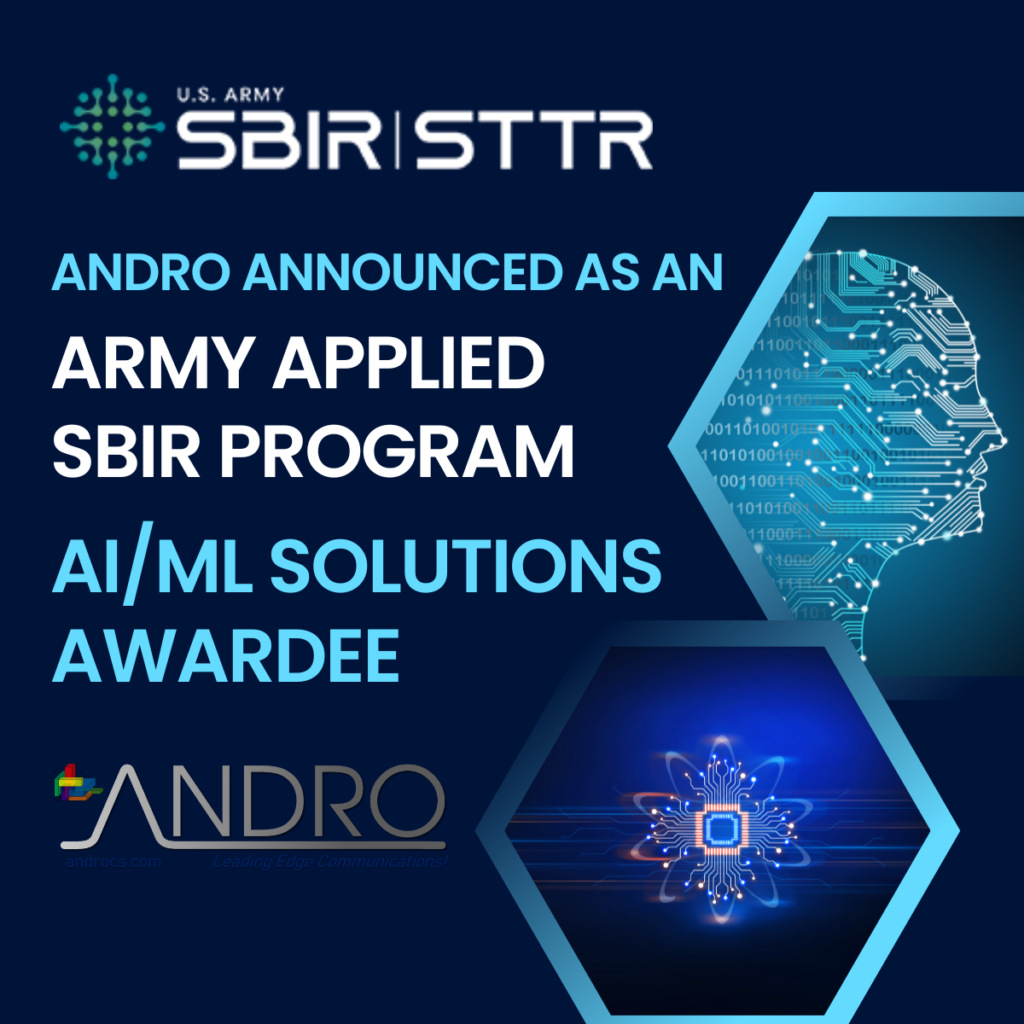ROME — ANDRO Computational Solutions of Rome is among five nationwide businesses accelerating innovation at the helm of the Army Small Business Innovation Research (SBIR) CATALYST pilot — a novel program that uses matching capital from transition partners and major weapons systems integrators to drive contracts up to $75 million to tackle Army customer needs.
Announced at the October 2022 Association of the United States Army Annual Meeting and Exposition by the Under Secretary of the Army, Hon. Gabe Camarillo, the Army SBIR CATALYST Program is one of five initiatives incentivizing the Army’s collaborative efforts with industry. Launched in February, the Army SBIR CATALYST pilot requests select small businesses to submit proposals for participation.
While the pilot accepted several small business technology proposals capable of supporting the Army of 2030, it focused on solutions within specific technology ecosystems where small businesses lead in innovation. To ensure the U.S. can overcome any adversary, the Army SBIR CATALYST pilot prioritizes ecosystems including artificial intelligence and machine learning, climate and clean tech, autonomy, and supply-chain logistics in the Indo-Pacific region.
Utilizing greater capital to enhance research and development investments, the Army SBIR Program will award five small businesses base contracts up to $1 million each for a six-to-12-month period of performance. The Army SBIR CATALYST pilot requires each awardee to have previously received an Army SBIR/STTR (Small-business Tech Transfer Research)
award within the past four fiscal years, while not having yet received a second SBIR/STTR Phase II under the same project.
The Army SBIR CATALYST Program pilot awardees include ANDRO Computational Solutions, Compound Eye Inc., EM Photonics Inc., R-Dex Systems Inc., and Solvus Global.
The focus of ANDRO’s work under its Marconi-Rosenblatt AI/ML Innovation Lab team will be on DeepSPEC: Artificial Intelligence-Powered Blind Signal Detector and Classifier, in cooperation with potential Army transition partner PEO Intelligence, Electronic Warfare and Sensors (PL Tactical Space Superiority).
Propelling emerging capabilities to transition and commercialization, the Army SBIR CATALYST contract award has potential for multi-phase funding opportunities. After the initial $1 million base award and six-to-12-month period of performance (PoP), recipients could receive Army SBIR CATALYST Phase II Enhancement contracts of up to $7 million of Army SBIR Program funds, up to $3.5 million in funding from the Army transition partner and up to $3.5 million from the technology integrator.
The result is a total funding potential of up to $15 million for each small business, based on a fund ratio of 2:1:1 over an additional 12-to-24-month PoP beyond the base period — for a contract pool of up to $75 million total across all five companies in the Army SBIR CATALYST pilot. Through these investments, the Army SBIR Program leverages capital to buy down risk for the Army’s larger, more scalable acquisition profile.
Via the pilot, the program will overcome untapped potential to transition Army technology challenges into major weapon systems programs by strongly synchronizing small business innovators with Army transition partners and integrators.
As a result, it will provide resources for advanced prototype development testing and transition.
Visit the Army Applied SBIR website for information about the awards.
Read the full Daily Sentinel article here










